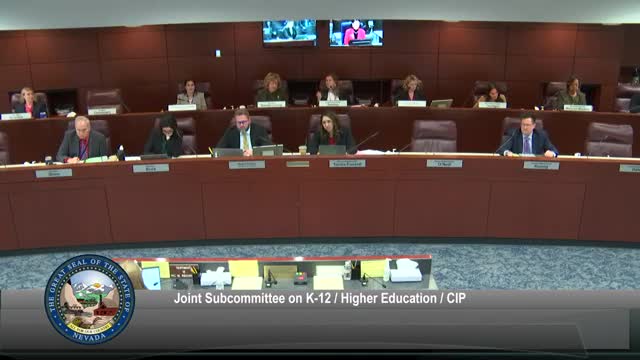Article not found
This article is no longer available. But don't worry—we've gathered other articles that discuss the same topic.
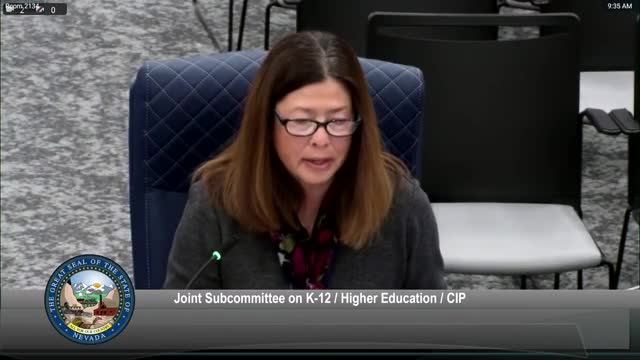
Department warns school‑based mental health grants are expiring; SafeVoice tips rising and contract costs debated
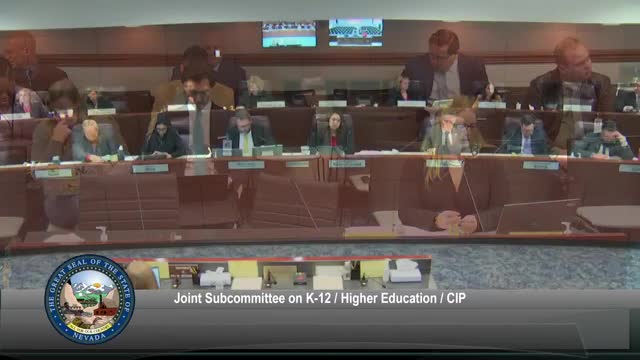
Nevada Department of Education seeks to expand pre-K seats while funding questions remain over federal grants and staffing
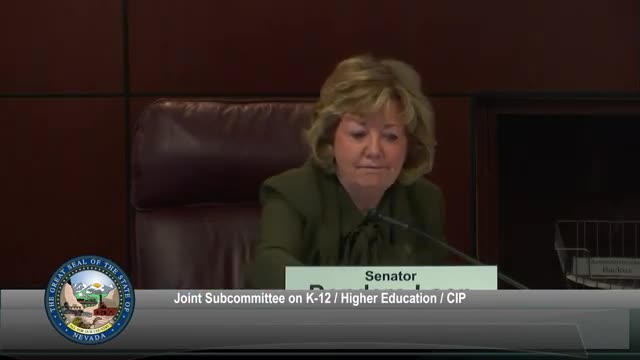
Superintendent defends $250,000‑per‑year studies to implement Commission on Innovation recommendations
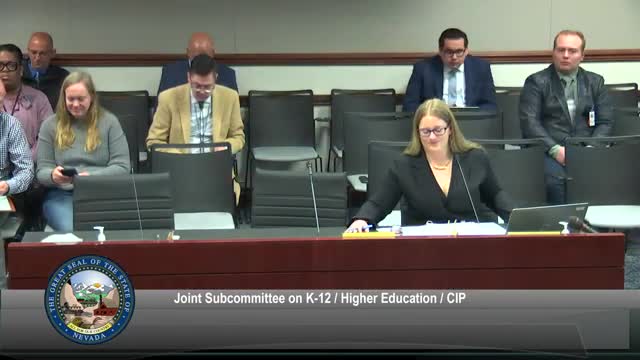
Department says ESSER liquidation extensions are wrapping up; some funds reverted to federal government
